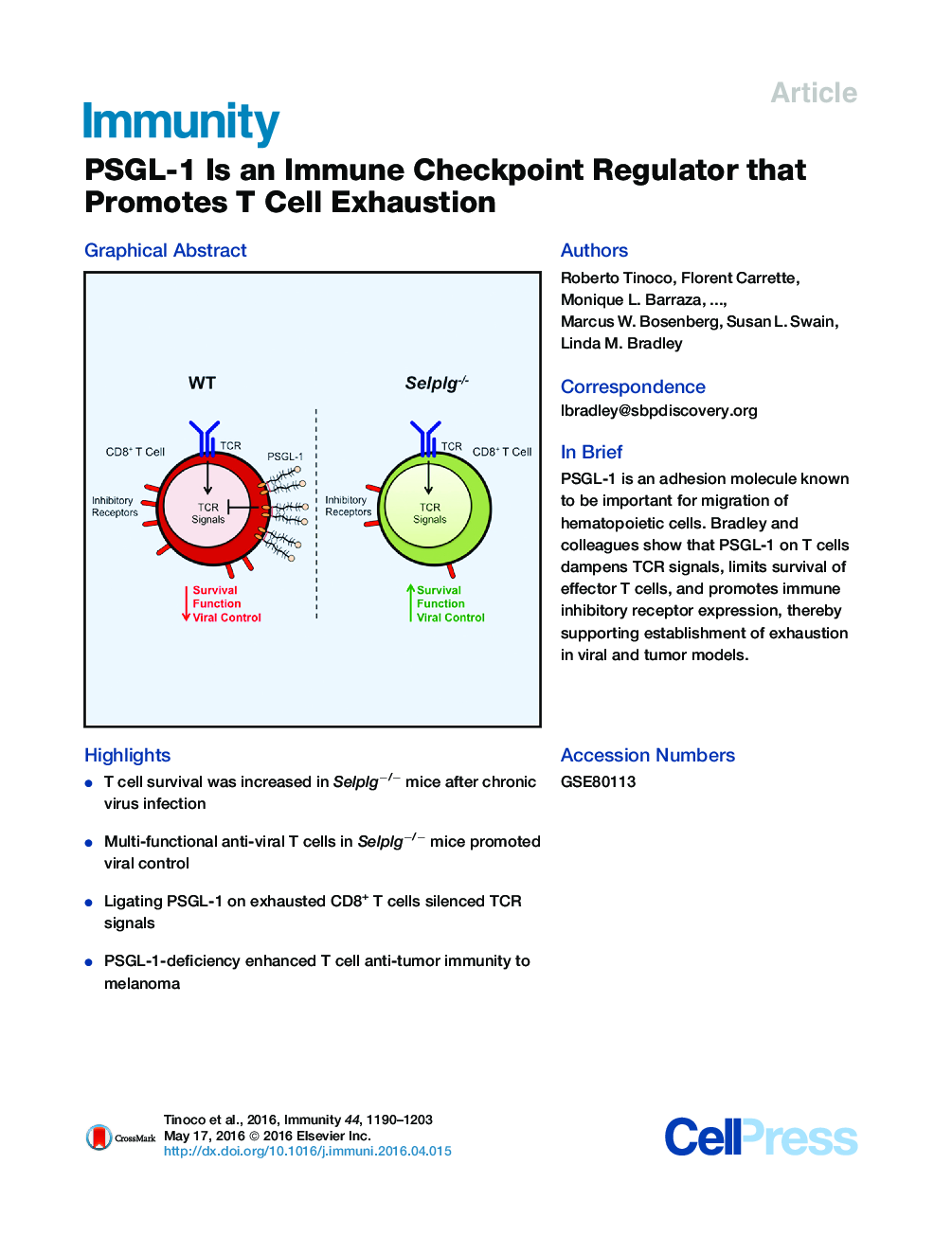| کد مقاله | کد نشریه | سال انتشار | مقاله انگلیسی | نسخه تمام متن |
|---|---|---|---|---|
| 3352886 | 1216804 | 2016 | 14 صفحه PDF | دانلود رایگان |

• T cell survival was increased in Selplg−/− mice after chronic virus infection
• Multi-functional anti-viral T cells in Selplg−/− mice promoted viral control
• Ligating PSGL-1 on exhausted CD8+ T cells silenced TCR signals
• PSGL-1-deficiency enhanced T cell anti-tumor immunity to melanoma
SummaryChronic viruses and cancers thwart immune responses in humans by inducing T cell dysfunction. Using a murine chronic virus that models human infections, we investigated the function of the adhesion molecule, P-selectin glycoprotein ligand-1 (PSGL-1), that is upregulated on responding T cells. PSGL-1-deficient mice cleared the virus due to increased intrinsic survival of multifunctional effector T cells that had downregulated PD-1 as well as other inhibitory receptors. Notably, this response resulted in CD4+-T-cell-dependent immunopathology. Mechanistically, PSGL-1 ligation on exhausted CD8+ T cells inhibited T cell receptor (TCR) and interleukin-2 (IL-2) signaling and upregulated PD-1, leading to diminished survival with TCR stimulation. In models of melanoma cancer in which T cell dysfunction occurs, PSGL-1 deficiency led to PD-1 downregulation, improved T cell responses, and tumor control. Thus, PSGL-1 plays a fundamental role in balancing viral control and immunopathology and also functions to regulate T cell responses in the tumor microenvironment.
Graphical AbstractFigure optionsDownload high-quality image (125 K)Download as PowerPoint slide
Journal: - Volume 44, Issue 5, 17 May 2016, Pages 1190–1203